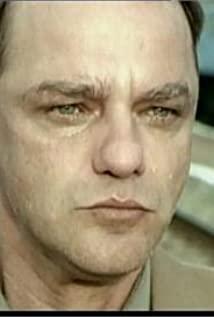First of all, I don’t think the film really sets up too many cultural barriers, so that audiences in non-Western cultural circles can’t understand it; what it reflects is precisely the effect of capitalist globalization on the cultures of different regions, the elimination of all boundaries, and the creation of new boundaries. Establish. For example, there is no language and value barriers between the hostess and Romanian colleagues, because they are all English-speaking, standardized "international business people". For example, on the one hand, the president of an oil company wants to send his child to a private international school, and on the other hand, in the slums of the capital. When the heroine took her father to visit Romania, she did not show Romania's "characteristic" cultural symbols, but took him to a typical large shopping mall, the so-called symbol and pride of Romania in the new era, but such a space can exist anywhere in the world. Corner, can be Bucharest, can be Shanghai, or Singapore? A small number of people buy and buy in empty shopping malls, while most people, as shown in the video, cannot afford to spend here because of unemployment problems, the gap between the rich and the poor, and the solidified class. Again, this is a global issue.
Seeing that his daughter was losing purpose and humanity in the jungle law of globalization, the father protested to her all the way, trying to bring her back. But are fathers and daughters really completely different species? As one of the few background sound scenes in the film, at the beginning of the film, the father makes his students dress up as zombies/vampires, and collectively sing the song Heute hier, Morgen dort (here today, there tomorrow). The video shows part of the lyrics: "I'm here today, I'll be there tomorrow/I haven't settled down yet, and I'm leaving again/I never complain about it/It's my own choice/Never care about the passing years/Never care about yesterday and tomorrow. ". This song describing the homeless who are not bound by time and space is the most famous work of German left-wing folk singer Hannes Wader, and it is also a collective memory of the left-wing/anti-imperialist and anti-feudal/anti-war/anti-establishment/feminists of the 1968 generation. The next generation of idealistic left-wing youth has become a career woman, an air trapeze, living the lifestyle dreamed of by the previous generation: self-worth, global citizenship, global thinking, open values, borderless people - the present Capitalist globalization and neoliberalism have realized the utopia of the left. On the one hand, however, Ines cannot find meaning in her work, and more often she is a pawn in the new system, moving forward aimlessly like a zombie. The gap between the rich and the poor in society has become a stereotyped capitalist vampire, constantly looking for new prey. It seems that everything is just a cycle. Here involuntarily thought of another German movie "Three Walks for the Sky". In the film, three rebellious youths kidnap an entrepreneur in order to declare war on capitalist exploitation. However, it was later discovered that the entrepreneur was also a rebellious 1968 generation, but he became more and more conservative in the process of contacting the society, and eventually became a person he hated. Similarly, Ines, an independent professional woman, is also a contradiction. Although she builds up similar values to her father, she is unable to shake hands with him, like the most familiar stranger. It's just that it's not the child who rebels here, but the father. Father's second rebellion. Did he succeed? Ines did return to China for his grandmother's funeral, but when his father lamented the passage of time, he changed the company (a more well-known company) and work place (farther from home). But I never complain about it/This is my own choice/Never care about passing away...
Perhaps there is no victim, no right or wrong, and no wise man between fathers and daughters. They are not only separated by age, but also separated by the vast ocean of social development. The two magnetic poles of the same name repel each other. In the process of father and daughter getting closer to each other to test, and then gradually losing each other without compromise, they once again have the same thing: become wanderers deprived of a sense of time and space. Seemingly free, but restrained, unable to escape his own world.
I like this film because on the one hand, it projects the father-daughter relationship on many levels and social phenomena, and does not stick to one theme; on the other hand, its implicit expression gives the audience the initiative to find meaning by themselves. The director never completely denied or affirmed anything, never wrote his own criticism into the film, but gave you a scene, threw you a question, and let you find the answer and critical entry point, and find what you need. Full open-ended plot. When I first watched the movie, I didn't feel much, but once I reminisced about it, it was full of stamina.
View more about Toni Erdmann reviews











